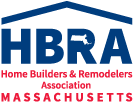Earlier this month, supporters of an effort to restore rent control in Massachusetts led by State Rep. Michael Connelly (D-Cambridge) filed an initiative petition (No. 23-42) to put rent control on the ballot in 2024. If approved by the voters, the law would allow cities and towns to enact policies regulating rents. The Home Builders and Remodelers Association of Massachusetts (HBRAMA), together with the Greater Boston Real Estate Board and the Massachusetts Housing Coalition submitted a legal memorandum to Attorney General Andrea Campbell in opposition to the certification of the petition.
Article 48 of the Massachusetts Constitution sets forth the process for bringing initiative petitions to the ballot. The Attorney General has until September 6 to certify or decline to certify any of the 42 ballot questions newly filed this year. Those decisions are designed to reflect only whether a question fulfills the requirements of the Constitution, not how Campbell feels about its policy merits. If she certifies the rent control petition, supporters can begin to collect the approximately 70,000 voter signatures necessary to place it on the ballot.
Article 48 requires the Attorney General to certify that an initiative petition “contains only subjects. . . which are related or which are mutually dependent.” In their memorandum, Attorneys Thomas Kiley and Meredith Fierro of the law firm CEK Boston, P.C., argue that Initiative Petition 23-42 contains multiple subjects—e.g., rent control, evictions, authority of municipalities to regulate any number of unspecified matters that “protect residential tenants” and provide for criminal penalties—that only have a marginal relationship with each other. For this reason alone, the Attorney General should decline to certify that it qualifies for the ballot. In the previous two-year cycle, former Attorney General Maura Healey declined to certify several proposals because they contained too many disparate topics.
Kiley and Fierro also argue that the petition may not be certified by the Attorney General because it contains a provision relating to “religion, religious practices or religious institutions.” Article 48 of the Constitution also provides that “[n]o measure that relates to religion, religious practices or religious institutions … shall be proposed by an initiative petition. Because the initiative petition contains a subject — an exemption from the provisions of the proposed law for convents and monasteries — that relates to religion, religious practices or religious institutions, it is excluded from the initiative and the Attorney General must therefore decline to certify that it qualifies for the ballot.
Other organizations that submitted written objection to the rent control petition include the Fiscal Alliance Foundation, the Pioneer Institute, the Massachusetts Association of Realtors, NAIOP, the Commercial Real Estate Association and the Small Property Owners Association.
In addition to leading the initiative petition for rent control, Rep. Connolly has also filed a broader tenant protection bill that awaits a public hearing before the Legislature’s Joint Committee on Housing. Boston Mayor Michelle Wu and the City Council are seeking approval from state lawmakers to bring rent control back to the capital city. The home rule petition they sent to the Legislature would cap annual rent increases at 6 percent plus the annual change in the Consumer Price Index, with a combined maximum of 10 percent, while exempting newer units, owner-occupied buildings with six or fewer units and the first year of a new tenant’s residence.
A copy of the CEK Boston legal memorandum can be found here.
An unofficial summary of Initiative Petition No. 23-42 can be found here.

